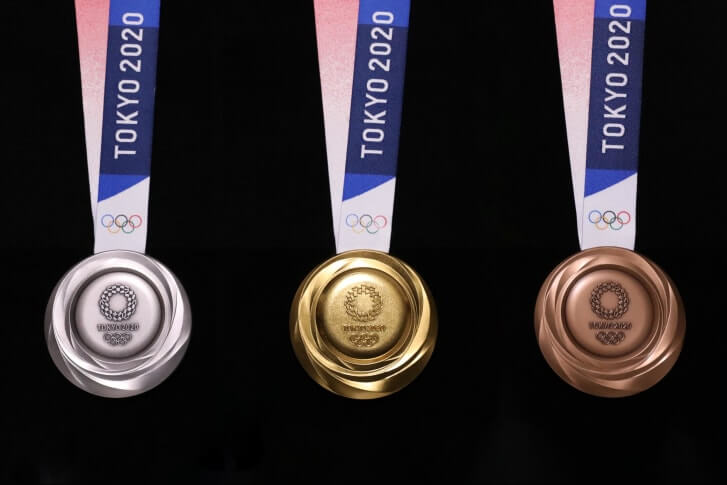What do Medals Actually Represent? A Look At Their Meaning

What do Medals Actually Represent? A Look At Their Meaning
What do medals really mean? For Paralympians and Olympians, many of their goals are “To win a gold medal at the Olympic Games.” That is a little different from simply getting first in any competition. There is emphasis placed on if athletes get “gold, silver or bronze medals” instead of getting first, second, or third place medals. Of course, the medals represent the placement that athletes get within competition. However, what do the medals mean other than placement? Why do they carry such importance?
Difference Between Medals and World Records
Holding a world record doesn’t guarantee that you get an Olympic medal. World records can happen at any meet, meaning that someone doesn’t even have to be an Olympian in order to have the fastest time in history. Olympic medals, World Championships medals, or any other type of medal, confirms that a specific athlete was the fastest racer in one particular event at one particular competition.
Even though records probably have more accuracy on who the best swimmers in history are, people remember swimmers’ legacies through Olympic wins. For example, Michael Phelps is regarded the most decorated Olympian of all-time, not the current world-record holder in the 400 individual medley, which is a fact. Medals clearly have a tie to athletic legacy, a physical representation of athletic achievement.
Auctioning History
There is a history of athletes auctioning off gold medals for charity. Most recently, Ryan Lochte auctioned off six olympic medals to benefit the Jorge Nation Foundation, a local South Florida charity that sends kids with terminal illnesses and their families on a trip of their choosing. However, he is hardly the first to sell medals for charity. In 2005, Anthony Ervin auctioned off his only Olympic gold at the time for the Tsunami Relief Fund. Canoeist Yuriy Cheban, the most decorated Ukraine male Olympian, auctioned off his two gold medals and one bronze to help the Ukraine’s recovery and defense following Russia’s invasion of the country.
You can’t auction off world records for charity. They are something intangible, even if they do give out certificates that verify record holders. Again, there is tangibility with what medals mean and represent for an athlete’s career. However, athletes in these instances were more than willing to part with their physical representation of their legacy.
The Actual Race
One thing to consider is how athletes talk of their journey and the races themselves when talking about gold medal wins. Iconic races such as the inaugural women’s 1500 freestyle at the Olympics, featuring Katie Ledecky, Erica Sullivan and Sarah Kohler, have medals that represent strides towards inclusion. The medals in this case partially represent the races and the people who advocated for women to have the same racing opportunities as men.
Even when reflecting on his legacy, Michael Phelps brings up the journey to get to the gold medal, the hours of work and racing challenges. Bobby Finke also discussed his excitement and process during the race for his 2020 800 freestyle Olympic gold. Clearly, medals can also be physical manifestations of athletes’ hard work.
What do Medals Really Mean?
There isn’t an exact answer to what medals actually mean other than placement. There is a general idea of legacy tied to winning Olympic medals in particular, but individual athletes place individual evaluations upon them. Even if the medal represents hard work or ways to help out those in need, at the end of the day, medals themselves have a small part in the everyday hard work that athletes go through.



